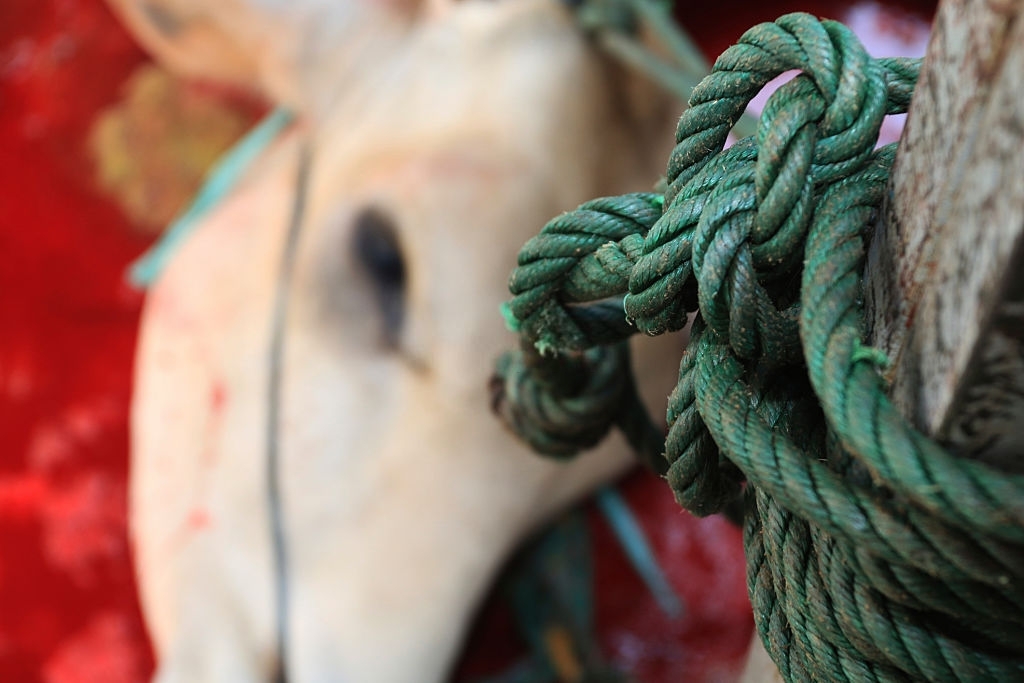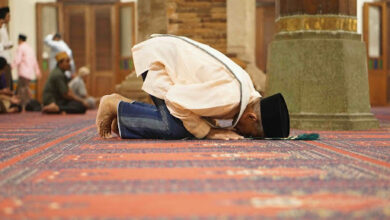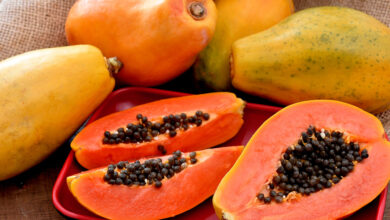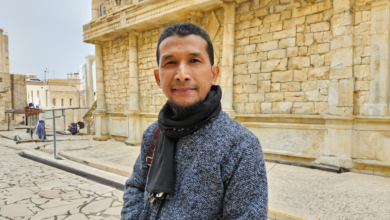
DDHK.ORG - Let's do good deeds at the beginning of the month of Dzulhijjah. This is recommended by the Prophet Muhammad, as he said:
"There is no righteous deed that is more beloved to Allah than the good deeds performed on these days (ie the first 10 days of the month of Dhul Hijjah)." The companions asked: "Neither jihad in the way of Allah?" The Prophet replied: "Neither jihad in the way of Allah, except those who set out for jihad with his life and property but none of them return." [HR. Abu Dawud]
The types of righteous deeds that can be done in the month of Dzulhijjah, including:
- Shaum (fasting) in the first 10 days of the month of Dhul-Hijjah;
- Qiyamul-lail (night prayer);
- Dhikr (reading tahlil, tahmid, takbir, and istighfar);
- Infaq-shadaqah;
- Sacrifice;
- Increase the number of other sunnah acts of worship.
In a hadith qudsi Allah Subhanahu wa Ta'ala says, "And always My servant draws near to Me with sunnah practices so that I love him. If I loved him, I would guide his hearing which he uses to hear, guide his sight which he uses to see, guide his hands with which he holds, and guide his feet which he uses to walk. If he asks Me for something, I will surely grant it and if he asks for protection, I will surely protect him." [HR. Bukhari]
In the month of Dzulhijjah, Muslims are also sunnah to perform the fast of 'Afarah which has a very big virtue. As explained in the hadith from Abi Qatadah RA, he said that; "The Messenger of Allah was once asked about fasting on the day of 'Arafah. He replied, 'Fasting removes the sins of one year ago and one year after. [HR. Muslim]
In the month of Dzulhijjah it is also recommended for Muslims to sacrifice. Qurban (udh-hiyah) is defined as livestock that is slaughtered on the day of 'Eid al-Adha and the day of Tasyriq (11, 12, 13 Dzulhijjah) in order to get closer to Allah because of the arrival of these holidays. [Kitab Al-Wajiz and Fiqhus-Sunnah]
Although the law is sunnah, the command to sacrifice is very strong. Namely:
- God's Word:
"Then pray to your Lord and slaughter animals." (Surah Al Kautsar: 2)
"That they may witness the various benefits for them and that they may mention the name of Allah on the appointed day [10-13 Dhulhijjah] for the sustenance that Allah has given them in the form of livestock. So eat some of it and (part of it) give it to the poor and needy to eat." (Surat al-Hajj: 28)
"And We have made for you the camels part of the signs of Allah, you get a lot of good in them, so mention by you the name of Allah when you slaughter them standing (and tied). Then when it has fallen (dead), then eat some of it and feed those who are content with what they have (who do not beg) and those who ask." (Surat al-Hajj: 36)
- The words of the Prophet Muhammad:
ان له ولم لا لَّانا
From Abu Hurairah RA, the Prophet SAW said; "Whoever has vast wealth and does not want to sacrifice, then do not approach our 'Eid prayer place". [HR. Ahmad & Ibn Majah]
From 'Aisha RA narrated that the Prophet SAW said, "The son of Adam does not do a deed on the day of Nahr ('Eid al-Adha) which is more loved by Allah than flowing blood (qurban), so you should feel happy about it." [Sahih Hadith, History of Tirmidhi, Ibn Majah and Al-Hakim]
The Wisdom of Sacrifice
Sacrifice worship has some wisdom in it. Among them:
- Tracing the traces of the struggle of Nabiyullah Ibrahim AS as proof of the love of taqarrub to Allah SWT;
- Real affirmation of monotheism, obedience, and extraordinary faith in Allah SWT which manifests in actions that will undoubtedly be very difficult for humans to carry out in general to sacrifice those they love.
In addition, qurban is also a sign of a servant's sacrifice for his Lord. “… And We called him: 'O Ibrahim, indeed you have confirmed the dream.' Indeed, this is how We reward those who do good. In fact this is a real test. And We ransomed the child for a big sacrifice. We immortalized for Ibrahim that (good praise) among those who came later, (i.e.) 'Prosperity be upon Ibrahim'." (Surat Ash-Saffat: 100-109)
The Law of Sacrifice
There are several opinions about the law of sacrifice. Namely:
- Mandatory (according to some scholars), for those who are given ample sustenance by Allah SWT;
- Sunnah mu'akkadah (which is highly recommended) for every Muslim. This is the opinion of the majority of scholars.
Every morning Allah sends two angels, one prays: "O Allah, give compensation for those who give infaq." And the second one prays: "O Allah, give destruction to those who hold back their wealth (stingy)." [HR. Bukhari-Muslim]
There are several conditions for the sacrifice to be valid. That is:
- In the form of bahiimatul An'aam (certain livestock), such as: goats, cows, and camels;
- The age of the sacrificial animal must be sufficient (camel 5 years, cow 2 years, goat 1 year, sheep 6 months);
- The sacrificial animal must not be physically disabled (blind, lame, etc.) or sick;
- May be male and female, but preferably male;
- The cost of procuring sacrificial animals can only be from: 1 person for a goat, 7 people for a cow, or 10 people for a camel.
Qurban is not limited to individuals who spend money to buy sacrificial animals. But it can also be reserved for his entire family and the people he intended.
The Prophet Muhammad (PBUH) used to sacrifice for himself and all his people. Once he was about to slaughter a sacrificial goat. Before slaughtering he said: "O Allah, this (qurban) is from me and from my people who do not sacrifice." [HR. Abu Dawud and Al-Hakim]
The Prophet SAW did this so that his ummah who could not afford to sacrifice would still get the reward like a Muslim who has sacrificed.
Should maintain the etiquette in slaughtering the sacrificial animal as was sunnahized by the Prophet SAW. That is:
- The owner of the qurban should slaughter the qurban animal himself or witness the slaughter;
- Ihsan in slaughtering;
- The sacrificial animal is brought to the Qiblah and placed on its left side;
- It is prescribed to read “Bismilhi wallahu akbar”, then followed by “Haadzaa minka wa laka, “annii” or “'an so and so/fulanah”.
- Pray that the qurban will be accepted by Allah SWT: "Allahumma taqabbal minnii" or "min fulan/fulanah".
- It is forbidden to make part of the sacrificial animal as wages for the butcher.
Shahibul qurban may use the meat of the qurban for several things:
- Eaten alone with his family;
- Donate to people in need and this is more important and recommended;
- Gifted to a rich person;
- Saved for food for another day. However, this storage is only allowed if there is no famine or food crisis
. ...
Ustadzah Erika Suryani Dewi, Lc., MA, during the Halaqoh study on Tuesday for Female Expatriates on July 6, 2021.
>>>This study was conducted online using the Zoom application and broadcast LIVE on the Facebook page Dompet Dhuafa Hong Kong. [DDHKNews]



